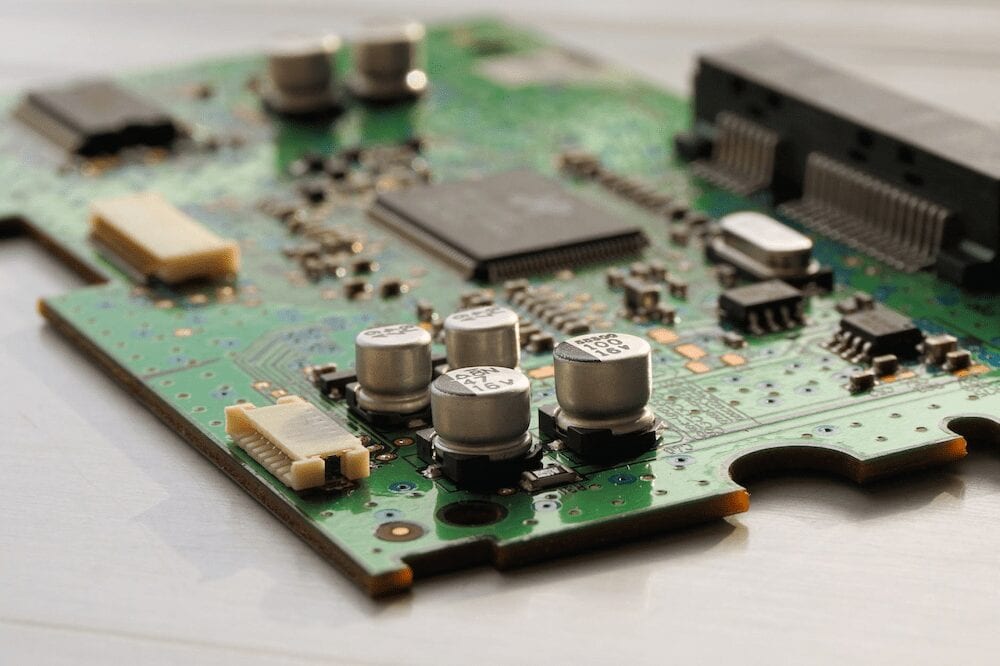Computer science vs computer engineering: what’s the difference? Computer science is the study of computer systems and software, whereas computer engineers focus on physical machines and computer components.
Students looking to head down the technology path may be confused by the options. It isn’t uncommon to get lost in the terminology and become even more overwhelmed by all the options. This guide breaks down how computer science and computer engineering differ, what skills you need for both, and what jobs you can land.
What is Computer Science?
Computer science is the most common field for anyone who wants to learn about technology. It’s also incredibly broad. The field involves the study of computer systems and how these systems work and process information. Computer scientists use code to translate English into languages the computer can comprehend.
CS is a general-purpose field, allowing students to learn the theoretical basis of problem-solving. Although many CS courses teach specific languages, the tech skills that students learn are transferable to a variety of jobs. For example, graduates of CS bootcamps or university programs have gone on to work with operating systems, build databases, and improve human-computer interactions.
What is Computer Engineering?
Computer engineering focuses more on the physical aspects of computers. The ‘engineering’ portion really emphasizes skills in designing and building hardware. This includes components like the monitor, keyboard, disk drive, and central processing unit (CPU).
Computer engineering courses involve a lot of electrical engineering and practical physics to understand the circuitry behind computer hardware. In this way, it may seem more specific, but computer engineering skills can apply to seemingly unrelated jobs.
With a computer engineering background, you can be a general mechanical engineer, industrial engineer, or electrical engineer. Because a lot of engineering jobs overlap, becoming a computer engineers can fork into a variety of pathways.
Computer Science vs Computer Engineering: Main Difference

Computer engineering vs computer science: which one is right for you? What is the difference? These two fields may overlap in some areas, but they pay attention to very different things.
The main difference boils down to this: software versus hardware. Computer scientists focus on software. Their responsibilities include programming and operating on computer systems. Computer engineers, on the other hand, work on hardware. They focus on solving problems related to physical components, microchips, and other systems. Computer engineers build computers.
Learning computer science vs software engineering or computer engineering could mean the difference between formulating a software program or building a physical PC system.
Computer Engineering vs Computer Science: Skills

Both computer science and computer engineering include similar skill-sets, especially when it comes to general math and science workload. Courses in physics and calculus build the necessary theoretical foundation for both pathways.
However, the CS course load concentrates on the inner software of a computer, the coding languages, working mostly with environments. However, the computer engineering course load involves the computer (for example, the CPU and RAM) and the networks connecting them, with the goal of eventually constructing them. You’ll learn how to design and create computer setups.
Computer science focuses more on problem-solving and attention to detail in order to troubleshoot bugs in code. Computer engineering also involves problem-solving, just in a different form. Computer engineers learn to sketch out and design computer hardware before creating the prototype. It often takes several rounds of testing the prototypes and fixing any issues before a functional piece of computer hardware is created.
Computer engineers learn what makes up an electronic device, how the architecture of a computer’s inner workings are laid out, and how to connect the physical network devices.
Computer Science and Computer Engineering Job Outlooks
Many CS students will enter a programming-related career. The opportunities are exhaustive. You can enter fields like artificial intelligence, security, and network systems, focus on human-computer interaction, or specialize in UI/UX design. The job roles range from technical to more creatively-focused. Some computer science jobs overlap with other technology fields, like in the case of a software engineer or systems analyst.
It’s important to note that the coding languages you learn with a CS degree may limit your career options. Many jobs in technology may ask for specific coding languages. For example, some data science jobs may require knowledge of SQL, or a web development job may want CSS and JavaScript knowledge. Some database analyst jobs, especially in niches like health, require knowledge about specific database systems. Keep that in mind if you have a specialized career goal.
With a computer engineering background, you will become skilled at designing computing systems and hardware. Professionals with a computer engineering background work in software engineering, electrical design engineering, or network engineering since the coursework includes components of other engineering niches. Most career opportunities in computer engineering are in fields focused on systems, cybersecurity, computer architecture, robotics, aerospace technology, or any job that includes communications systems.
Which is Better, Computer Science or Computer Engineering?
How do you choose between computer science and computer engineering? We can’t tell you exactly what to do, but here are some reasons you may choose one over the other.
Computer engineers are, in fact, engineers. They use engineering principles and math to design and build complex physical computer systems. If you like tinkering and building things, computer engineering may be ideal.
Computer scientists focus on theoretical problems, software programs, and programming. If you like designing systems and solving real problems using virtual technology, then you should consider CS. Computer scientists do not necessarily need a four-year degree to be considered employable. Many employers will hire a computer scientist that has obtained a computer science certification.
Similarities Between Computer Science and Computer Engineering

Other than the fact that both computer science and computer engineering deals with computers, they do have a couple of things in common. Most of the devices that computer engineers design come to life through CS. Both computer scientists and computer engineers need to work together to create an optimally functioning computer.
Computer science and computer engineering also require similar practical and theoretical knowledge. For example, both need an understanding of how operating systems work. Both also utilize the same eye for design, planning, and strategic implementation. The two roles may work in similar job environments and usually collaborate as part of a team. You could say, one couldn’t exist without the other.
About us: Career Karma is a platform designed to help job seekers find, research, and connect with job training programs to advance their careers. Learn about the CK publication.



